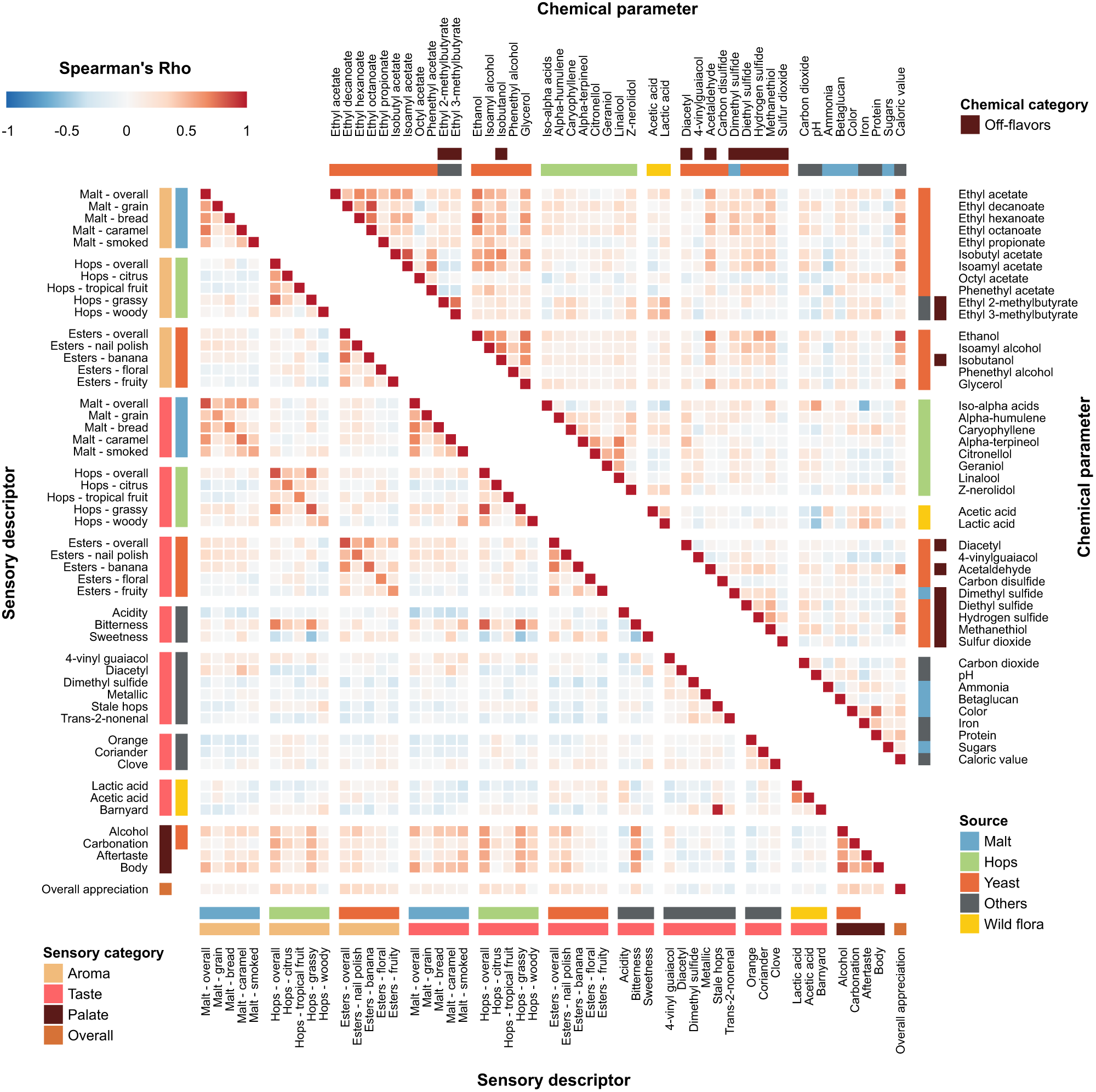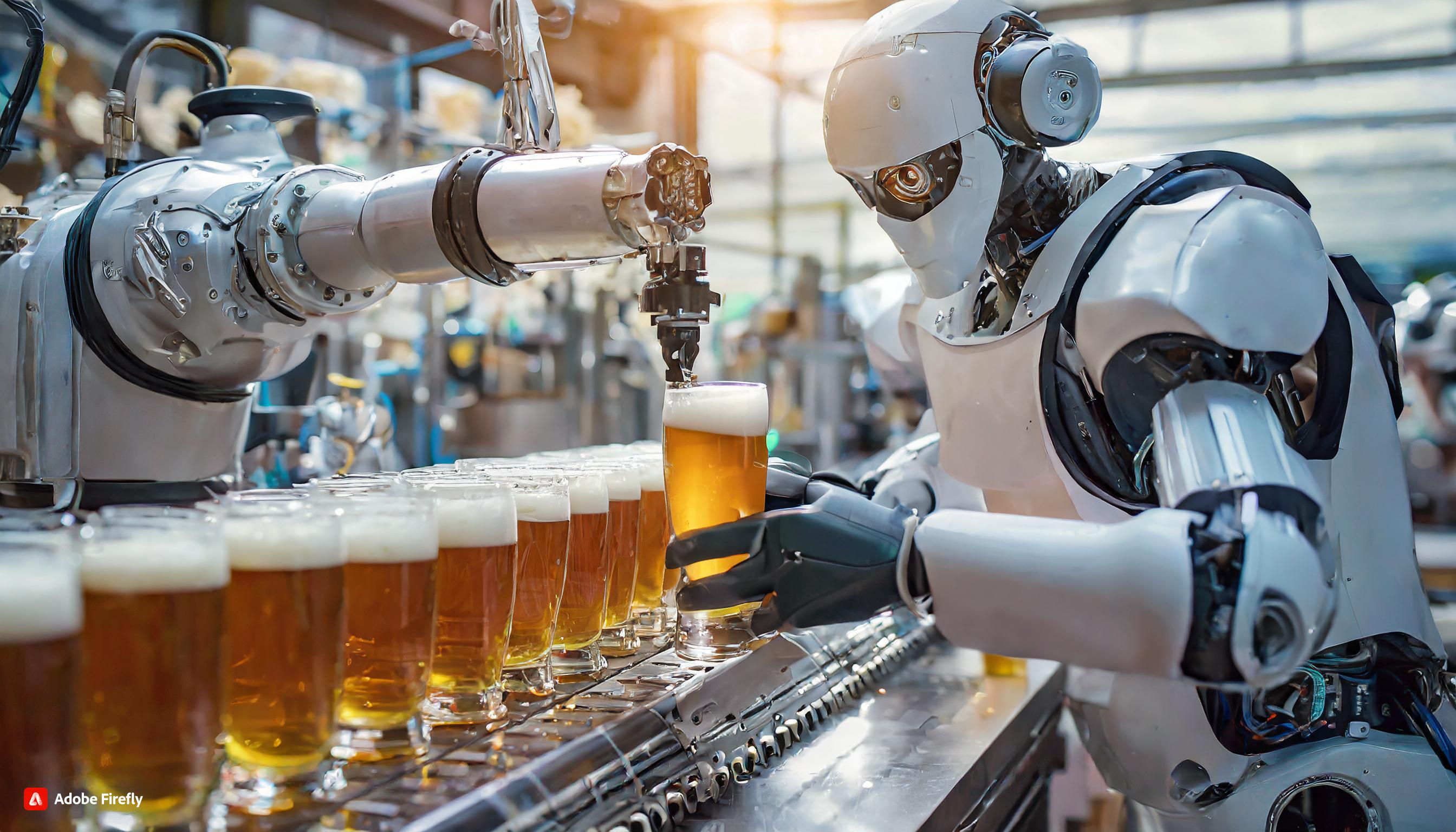AI predicts the taste and quality of beer
Revolutionizing the beverage industry and making better beer
Leuven (Belgium) 26 March 2024 - Belgian scientists have developed AI models that can predict how a particular beer will be rated by consumers, and what aroma compounds brewers can add to improve it. The research was published today in the renowned scientific journal Nature Communications and may revolutionize how the food and beverage industry develops new products.
Tricky to compare
Comparing and ranking flavor profiles of different beers is a challenge. There are a multitude of guides on the market describing beverages with generic terms like ‘fruity’ and rating them based solely on one person’s taste. "This makes beer comparisons highly biased and makes it difficult to predict how a beer actually tastes,” says Kevin Verstrepen, professor at KU Leuven and director of the VIB-KU Leuven Center for Microbiology and the Leuven Institute for Beer Research.
I wanted to have a more neutral and scientific description for the different beers in the world. - Kevin Verstrepen
The team started chemically analyzing beers, carefully measuring the concentrations of hundreds of aroma compounds. Each beer was also evaluated on a set of 50 criteria by a trained panel of 15 people. “It was a truly Herculean effort. We began the project with less than 100 beers, and quickly realized this would not be enough to capture Belgium’s incredible beer diversity, so we ended up analyzing 250 beers,” remembers Dr. Miguel Roncoroni, who led the chemical analyses and tasting panel.

New insights with AI
It took the team 5 years, but once they had the chemical concentrations and detailed tasting reports for hundreds of different beers, they knew it would be possible to use AI to connect the two. One model could predict key aromas and the final appreciation score of a beer, without the need for human tasting. These outcomes, in turn, were used to further improve the taste of an existing commercial Belgian ale, by adding certain aromas predicted by the model to boost the beer’s quality. Sure enough, the modified beer indeed scored quite a bit better in blind tastings.
The flavor of beer is a complex mix of aroma compounds. It is impossible to predict how good a beer is by just measuring one or a few compounds. We really need the power of computers. - Michiel Schreurs
The study can be expanded to other food products, which may revolutionize how new foods are made.
Our biggest goal now is to make better alcohol-free beer. Using our model, we have already succeeded in creating a cocktail of natural aroma compounds that mimic the taste and smell of alcohol without the risk of a hangover. - Kevin Verstrepen
“However,” Michiel Scheurs adds jokingly, “we did celebrate the paper with the alcohol-containing variants!”.
Publication
Scheurs M. (et al.) Predicting and improving complex beer flavor through machine learning. DOI number 10.1038/s41467-024-46346-0

Joran Lauwers
About the VIB-KU Leuven Center for Microbiology
The big impact of bacteria on our health, the use of yeasts to enhance the production of chocolate, beer or bioethanol, yeast as a model system for studying human disease ... these are just a few of the research areas for the scientists at the VIB-KU Leuven Center for Microbiology. Their research also has important implications in various fields of application.
About VIB
VIB’s core mission is to generate disruptive insights in the molecular underpinning of life and to translate these actively into impactful innovations for patients and society. VIB is an independent research institute where some 1,800 top scientists from Belgium and abroad conduct pioneering basic research. As such, they are pushing the boundaries of what we know about molecular mechanisms and how they rule living organisms such as human beings, animals, plants, and microorganisms. Based on a close partnership with five Flemish universities – Ghent University, KU Leuven, University of Antwerp, Vrije Universiteit Brussel, and Hasselt University – and supported by a solid funding program, VIB unites the expertise of all its collaborators and research groups in a single institute. VIB’s technology transfer activities translate research results into concrete benefits for society such as new diagnostics and therapies and agricultural innovations. These applications are often developed by young start-ups from VIB or through collaborations with other companies. This also leads to additional employment and bridges the gap between scientific research and entrepreneurship. VIB also engages actively in the public debate on biotechnology by developing and disseminating a wide range of science-based information.
More info can be found on www.vib.be.



